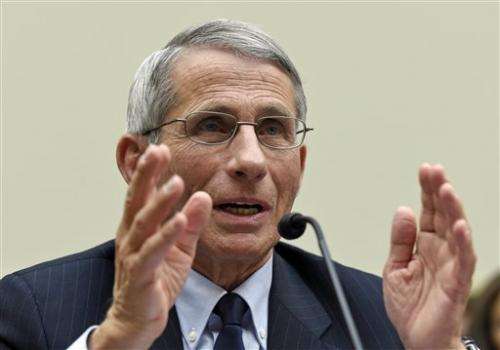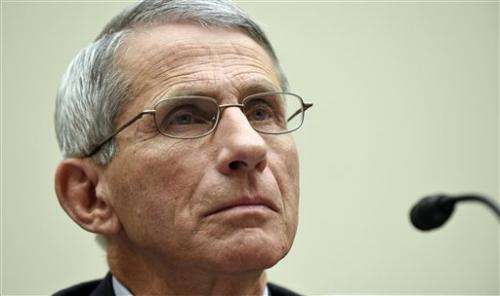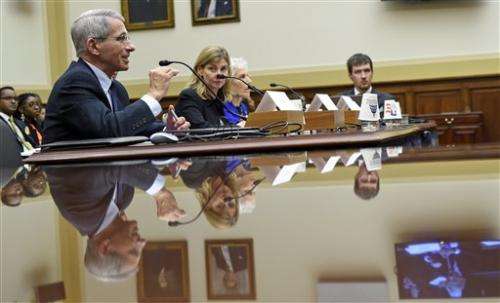US scientist: Ebola unlikely to become airborne

It is unlikely that Ebola would mutate to spread through the air, and the best way to make sure it doesn't is to stop the epidemic, a top U.S. government scientist told concerned lawmakers Wednesday.
"A virus that doesn't replicate, doesn't mutate," Dr. Anthony Fauci of the National Institutes of Health told a House Foreign Affairs subcommittee.
Fauci said U.S. researchers are monitoring for mutations in the virus, which has killed at least 2,400 people.
But considering all the dire things to worry about with this out-of-control epidemic in West Africa, that mutation concern is not "something I would put at the very top of the radar screen," said Fauci, head of NIH's National Institute of Allergy and Infectious Diseases.
The unprecedented Ebola outbreak is believed to have sickened nearly 5,000 people, mostly in Liberia, Sierra Leone and Guinea. The deadly virus also has reached Nigeria and Senegal.
Ebola is spread through direct contact with the bodily fluids of sick patients. But as the epidemic has grown, so have questions about whether, if left unchecked, the virus might transform and become more contagious.
In hearings in the Senate and House on Tuesday and Wednesday, lawmakers asked Fauci if it might even become airborne.
Viruses certainly mutate all the time, making mistakes as they copy themselves in order to grow and spread, Fauci explained. Most of those mutations are irrelevant, not associated with any biological change.

But sometimes, those mutations can make a virus a little more or a little less virulent, or make it a little more or a little less efficient at spreading in whatever way it normally is transmitted, he said.
"Very, very rarely does it completely change the way it's transmitted," Fauci said.
He stressed that he's not saying it's impossible.

"People might think I'm pooh-poohing it. I'm not," Fauci said.
He said the government had funded the Broad Institute in Boston to study the virus' mutations. In a publication last month, the researchers reported a somewhat more rapid rate of mutations than expected at that point in the outbreak, but that nothing had jumped out as being of special concern so far.
© 2014 The Associated Press. All rights reserved.
















